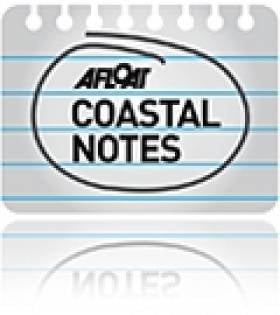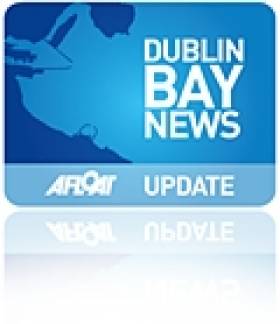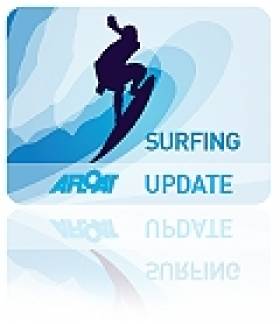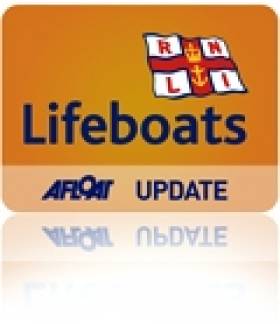Displaying items by tag: family
Oscar Winning Director of 'The Shore' Returns to NI
#COASTAL NOTES - Northern Irish director Terry George has returned to a hero's welcome in his native Co Down following his Oscar win for short film The Shore, the Irish Echo reports.
The film, which was set on Coney Island near Killough on the egde of Strangford Lough, tells the story of a man who returns to his coastal community after 25 years living in the USA.
“It’s great to come home and to visit everyone who made the film possible, the people who were in it, go back and see our neighbors,” said George on landing in Belfast. “You kind of hope that you’ll bring back the awards here to Ireland.”
The Shore is also a family effort, as it was produced by the director's daughter Oonagh George.
Harbour2Harbour Dublin Bay Walk Coming Soon
#DUBLIN BAY NEWS - The annual St Patrick's Day Harbour2Harbour Walk in aid of mental health charity Aware is just a few weeks away.
The 16.2 mile walk around Dublin Bay begins at 10.30am on Saturday 17 March, taking around five hours to complete, and it's your choice whether you begin at Howth Harbour and walk to Dun Laoghaire Harbour or vice versa.
Organisers describe the event as "a great day out for family, friends and individuals, all of whom get a great sense of achievement and a great view of Dublin Bay."
Of course the main aim of the day is to raise funds for Aware, and once registered to take part you will receive a fundraising pack containing letters, information, maps and sponsorship cards. You can also set up your own fundraising page on MyCharity.ie.
The registration fee is €15 per individual or €25 for a group of 2 (children under 16 are free). Advance online registration is now available at the Aware website HERE. Late registration will be available on the morning of the walk itself.
Volunteers are also required to help with late registration on the morning of the walk and act as stewards at various points along the route. If you can help please call 01 661 7211 or e-mail [email protected].
More information about the day can be found at Aware's Harbour2Harbour webpage HERE.
Surfing's for All The Family in Fuerteventura
Surfing isn't just for extremists - it can be a fun activity for the whole family, and you can even build a holiday around it!
Gary Quinn writes in The Irish Times about family surfing lessons in the Fuerteventura, where there's been an explosion in surf schools and holiday operators in recent years. As such, there's something available for all levels.
And with the Canary Islands already a popular sun-drenched holiday destination, even complete beginners won't feel they're getting in over their heads.
"Surfing is a lifestyle," writes Quinn. "The families and groups around me are absorbed by it. Their clothes, food, internal clocks. Everything swings with the tides and everyone is relaxed."
There's also a handy checklist for families to make sure everyone gets the most out of the experience.
The Irish Times has more on the story HERE.
Family Say 'Thank You' to Portrush Lifeboat for Saving Son
A grateful family presented a cheque to Portrush lifeboat crew in thanks for saving their son this summer.
On 16th May 2010 both Portrush Lifeboats were launched to two separate incidents within one at 0922 hours and one at 0924 hours.
Within minutes two full volunteer crews had assembled and both the All-weather Lifeboat and the Inshore Lifeboat were launched. The Inshore Lifeboat was launched to reports of two young people in the water at Dhu Varren. Karl O'Neill was at the helm supported by Nick Christie and Jonathan Weston. Two youths had gone into the sea after a dog, and were starting to experience real difficulties in getting back to shore. One of the youths Damian Morris had sustained cuts to his arms and legs, was suffering hypothermia and was literally going under the water for the third time when the Portrush Lifeboat arrived on scene. Damian spent several days in hospital as a result of the incident and was delighted to be able to come to the station to meet the crew who had saved him that day.
Damian's uncle and Godfather Raymond Comac and his friend Paul McGuigan, do a lot of charity work in Damian's hometown in Omagh holding fundraisers to raise funds to take motorbikes out to South Africa for use by health care workers in the townships. However this year, they divided the proceeds between their charity and the RNLI, in recognition of the fact that the volunteer crew at Portrush had saved Damian's life.
Damian's parents Liam and Rosemary Morris, Damian himself and his uncle Raymond and friend Paul travelled to Portrush to meet the crew and hand over a cheque for £1000. Both Nick and Karl were overwhelmed by the generosity and stated;
'We don't do this for thanks, but it's so nice to meet someone that you have helped and for this amount to be raised is fantastic for the station'
The family got a tour of the station and had a look at the new Inshore lifeboat 'The David Roulston' which took over from the 'Ken and Mary' the boat that responded to the call that day....one of her last launches.
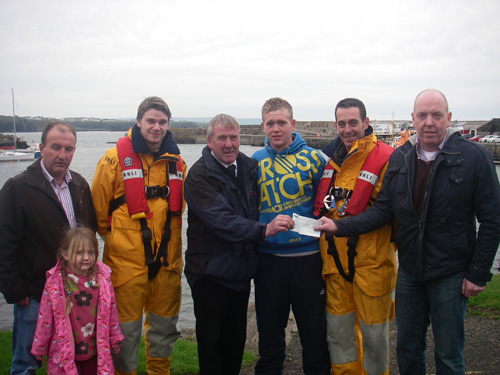
Related Safety posts
RNLI Lifeboats in Ireland
Safety News
Rescue News from RNLI Lifeboats in Ireland
Coast Guard News from Ireland
Water Safety News from Ireland
Marine Casualty Investigation Board News
Marine Warnings



























